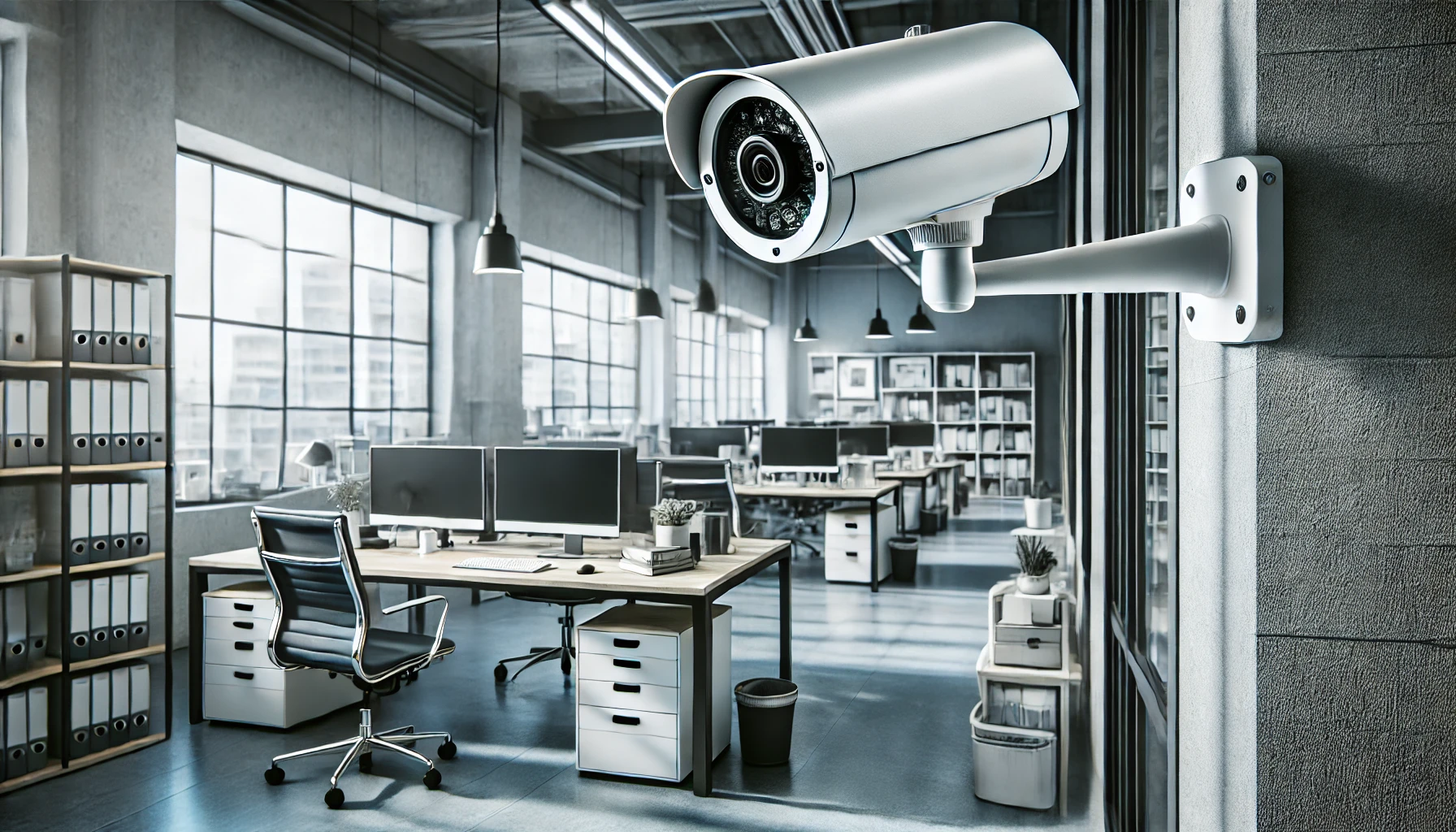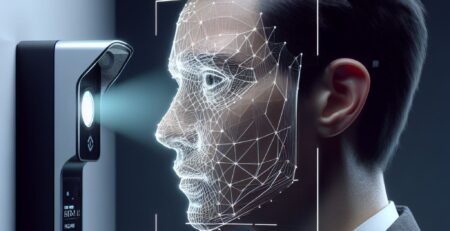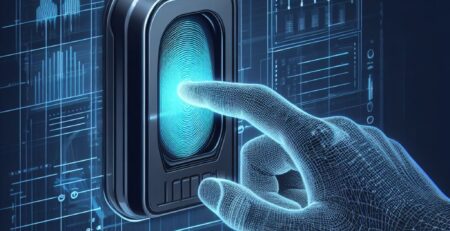Implementation of CCTV in Government Installations
Have you ever wondered how to ensure security in government facilities? The answer lies in CCTV, an essential system for monitoring and surveillance. We will explore how to implement CCTV in public institutions, ensuring compliance with legal standards, especially Law 14,133/2021.
What is CCTV?
CCTV, or Closed Circuit Television, is a monitoring system that uses cameras to transmit signals to specific monitors. Unlike open TV, CCTV is a closed system, allowing only authorized users to access the images. Key components include cameras, monitors, video recorders, and network infrastructure.
Importance of CCTV for Governments
Implementing CCTV in government facilities brings several benefits. In addition to increasing security, CCTV helps monitor suspicious activity, preventing crimes and ensuring the protection of employees and citizens.
CCTV Installation Planning
Needs Assessment
Before beginning installation, it is essential to assess the specific needs of the location. Identify critical areas that require monitoring, such as entrances, exits and restricted access areas.
Defining Objectives
Clearly define the objectives of the CCTV system. They may include crime prevention, monitoring specific areas, and collecting evidence for future investigations.
Choice of Equipment
Types of Cameras
The choice of cameras is crucial. Analog cameras are cheaper, but digital cameras offer better image quality and advanced features such as night vision and motion detection.
Technical Considerations
Consider technical aspects such as resolution, viewing angle, weather resistance and storage capacity. These characteristics guarantee the effectiveness of the CCTV system.
Compliance with Law 14,133/2021
Bidding Procedures
Law 14,133/2021 establishes clear guidelines for bidding on CCTV systems. Prepare a detailed notice and follow legal procedures to ensure transparent and fair hiring.
Supplier Selection Criteria
Select suppliers based on criteria such as equipment quality, market experience and technical support offered. Make sure the supplier you choose complies with legislation.
CCTV System Installation
Site Preparation
Prepare the location for system installation. This includes installing cables, preparing surfaces for mounting cameras, and checking lighting conditions.
Assembly and Configuration
Assemble and configure the cameras and other system components. Make sure all cameras are positioned correctly and the system is working properly.
Maintenance and Technical Support
Periodic Check
Carry out periodic checks on the CCTV system. This includes cleaning the cameras, checking the connections and testing their function.
Software Updates
Keep your CCTV system software up to date. This ensures you have access to the latest features and security fixes.
Personal training
Initial Training
Provide initial training for CCTV system operators. They must know how to monitor footage and respond quickly to any incidents.
Continuous Training
Invest in ongoing training for operators. This ensures they are always up to date with new security technologies and procedures.
Future of CCTV in Government Installations
Artificial Intelligence and CCTV
Artificial intelligence is transforming CCTV systems. With AI, it is possible to analyze large volumes of data in real time, identify suspicious behavior and proactively alert authorities.
Integration with Other Technologies
Integrate CCTV with other security technologies, such as alarms and access control systems. This integration creates a more robust and effective safety net.
Conclusion
Implementing CCTV in government facilities is crucial to ensuring the safety and security of employees and citizens. With compliance with Law 14,133/2021, the installation process becomes more transparent and effective. Investing in a high-quality CCTV system that complies with legal standards is essential for any government institution. If you are looking for integrated CCTV solutions, C2H Solutions is ready to help. Contact us through our contact page to receive a quote and improve the safety of your community.
FAQs
- What is CCTV?
- CCTV, or Closed Circuit Television, is a monitoring system that uses cameras to transmit signals to a specific set of monitors.
- What are the benefits of CCTV in government facilities?
- CCTV helps prevent crime, enables continuous monitoring, ensures rapid response to incidents and provides evidence in investigations.
- How does Law 14,133/2021 impact the implementation of CCTV?
- The law promotes transparency and legality in contracting CCTV systems, establishing clear guidelines for bidding procedures.
- What are the technical considerations when implementing a CCTV system?
- It is important to choose high-quality equipment, perform regular maintenance, and properly train personnel responsible for monitoring.
- How is artificial intelligence transforming the use of CCTV?
- AI can analyze data in real time, identify suspicious behavior and proactively alert authorities, increasing the effectiveness of CCTV systems.












Comments (12)
💡 A implementação de CFTV em instalações governamentais não só aumenta a segurança, mas também promove a transparência e a confiança na gestão pública. É fundamental explorar as melhores práticas para garantir eficiência e eficácia nesse processo!
👉 Quer aprofundar seus conhecimentos sobre #Controle de Acesso? Explore mais conteúdos exclusivos em nosso blog na seção #Controle de Acesso.
🤝 Envie um email para nosso departamento comercial! comercial@c2hsolutions.com.br
💡 A implementação de CFTV em instalações governamentais é crucial para garantir a segurança e a integridade das operações. Investir em tecnologia de monitoramento é um passo essencial para a proteção do patrimônio público e da população.
👉 Quer aprofundar seus conhecimentos sobre #Controle de Acesso? Explore mais conteúdos exclusivos em nosso blog na seção #Controle de Acesso.
🤝 Envie um email para nosso departamento comercial! comercial@c2hsolutions.com.br
💡 A implementação de CFTV em instalações governamentais é uma medida essencial para garantir a segurança e a transparência. Com a tecnologia adequada, podemos criar ambientes mais seguros e monitorados!
👉 Quer aprofundar seus conhecimentos sobre #Controle de Acesso? Explore mais conteúdos exclusivos em nosso blog na seção #Controle de Acesso.
🤝 Envie um email para nosso departamento comercial! comercial@c2hsolutions.com.br
💡 A implementação de CFTV em instalações governamentais é crucial para garantir a segurança e a transparência nas operações públicas. Com tecnologia avançada, podemos transformar a vigilância em uma ferramenta de confiança e inovação!
👉 Quer aprofundar seus conhecimentos sobre #Controle de Acesso? Explore mais conteúdos exclusivos em nosso blog na seção #Controle de Acesso.
🤝 Envie um email para nosso departamento comercial! comercial@c2hsolutions.com.br
💡 A implementação de CFTV em instalações governamentais é um passo fundamental para garantir a segurança e integridade das operações. Além disso, essas tecnologias se integram perfeitamente com soluções de controle de acesso para uma proteção ainda mais robusta!
👉 Quer aprofundar seus conhecimentos sobre #Controle de Acesso? Explore mais conteúdos exclusivos em nosso blog na seção #Controle de Acesso.
🤝 Envie um email para nosso departamento comercial! comercial@c2hsolutions.com.br
💡 A implementação de CFTV em instalações governamentais é essencial para garantir a segurança e a transparência necessárias em nossa sociedade. Com as soluções adequadas, é possível monitorar e controlar o acesso de forma eficiente e confiável.
👉 Quer aprofundar seus conhecimentos sobre #Controle de Acesso? Explore mais conteúdos exclusivos em nosso blog na seção #Controle de Acesso.
🤝 Envie um email para nosso departamento comercial! comercial@c2hsolutions.com.br
💡 A implementação de CFTV em instalações governamentais é essencial para garantir a segurança e a transparência. Com tecnologias avançadas, é possível monitorar e proteger áreas sensíveis de forma eficaz.
👉 Quer aprofundar seus conhecimentos sobre #Controle de Acesso? Explore mais conteúdos exclusivos em nosso blog na seção #Controle de Acesso.
🤝 Envie um email para nosso departamento comercial! comercial@c2hsolutions.com.br
💡 A implementação de CFTV em instalações governamentais não só aumenta a segurança, mas também promove a transparência e a confiança pública. Invista em tecnologia para proteger o que é nosso!
👉 Quer aprofundar seus conhecimentos sobre #Controle de Acesso? Explore mais conteúdos exclusivos em nosso blog na seção #Controle de Acesso.
🤝 Envie um email para nosso departamento comercial! comercial@c2hsolutions.com.br
💡 A implementação de CFTV em instalações governamentais é um passo crucial para garantir a segurança e a transparência. Além de proteger o patrimônio, essas soluções contribuem para a confiança da população.
👉 Quer aprofundar seus conhecimentos sobre #Controle de Acesso? Explore mais conteúdos exclusivos em nosso blog na seção #Controle de Acesso.
🤝 Envie um email para nosso departamento comercial! comercial@c2hsolutions.com.br
💡 A implementação de CFTV em instalações governamentais é um passo crucial para garantir a segurança e a proteção dos cidadãos. Aproveitar a tecnologia de ponta não só aumenta a eficácia do monitoramento, mas também promove a transparência.
👉 Quer aprofundar seus conhecimentos sobre #Controle de Acesso? Explore mais conteúdos exclusivos em nosso blog na seção #Controle de Acesso.
🤝 Envie um email para nosso departamento comercial! comercial@c2hsolutions.com.br
#Controle de AcessoImplementação de CFTV em Instalações Governamentais#Controle de AcessoSegurança com Inovação e Confiabilidade – C2H Solutions
#Controle de AcessoImplementação de CFTV em Instalações Governamentais#Controle de AcessoSegurança com Inovação e Confiabilidade – C2H Solutions